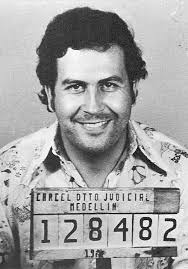The Life and Legacy of Pablo Escobar

Introduction
Pablo Escobar, often regarded as one of the most notorious criminals of the 20th century, continues to captivate public interest due to his life as a drug lord, philanthropist, and political figure in Colombia. His impact on the drug trade and Colombian society is profound, making him a significant figure in discussions about drug trafficking, violence, and socio-economic issues in Latin America. Understanding Escobar’s life is essential to grasping the broader implications of the narcotics trade and the socio-political climate in Colombia.
The Rise of Pablo Escobar
Born on December 1, 1949, in Rionegro, Colombia, Escobar quickly rose to power in the 1970s as the head of the Medellín Cartel, which became the world’s largest supplier of cocaine. By the time of his death in 1993, it was estimated that Escobar was responsible for 80% of the world’s cocaine supply. His wealth was staggering, at times reaching up to $30 billion, giving him immense power and influence.
Philanthropy and Political Aspirations
Despite his criminal activities, Escobar was also known for his philanthropic efforts, building schools, hospitals, and soccer fields in impoverished neighborhoods. This earned him popularity among many poor Colombians, who saw him as a Robin Hood-like figure. Additionally, he attempted to enter politics, even serving as an alternate member of Colombia’s Congress in 1982. However, his political ambitions were overshadowed by his criminal enterprises.
The Downfall
The 1980s and early 1990s were marked by an intense and violent conflict between the Colombian government, rival drug cartels, and Escobar’s Medellín Cartel. Escobar was responsible for numerous acts of violence, including car bombings, assassinations, and threats against public officials. The Colombian government, with the assistance of the United States, eventually intensified their efforts to bring him to justice.
Death and Legacy
Pablo Escobar was killed on December 2, 1993, in Medellín, Colombia, a day after his 44th birthday. His death marked the decline of the Medellín Cartel, but the drug trade did not end; instead, it morphed into new forms and players. Today, Escobar’s legacy is a complex one, as he is both vilified as a criminal and romanticized in popular culture through films and television series. His life story serves as a cautionary tale about the consequences of the drug trade, both for individuals and society at large.
Conclusion
The enduring fascination with Pablo Escobar underscores the ongoing struggles with drug trafficking, governance, and societal impacts in Colombia and beyond. As global drug policies evolve, understanding Escobar’s influence and the historical context of his reign remain crucial for addressing the persistent challenges related to narcotics and violence in the modern world.








